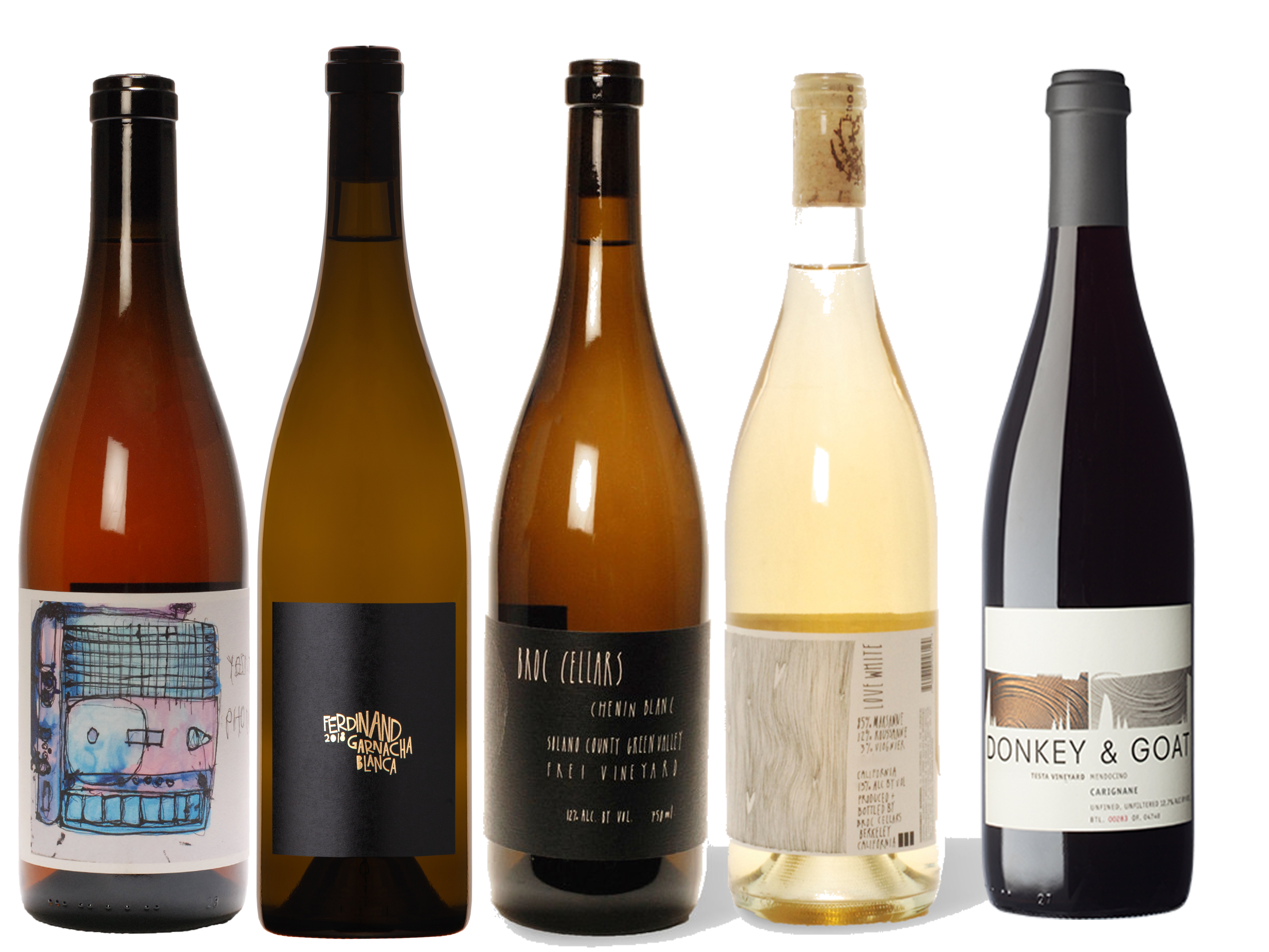Seven sensationally different wines from California
Californian wine is all very fine and dependable but not exactly spectacular, right? Not if you’re one of these small players on the market, writes Terry Kirby

So you think you know your Californian wines? Isn’t it all about oaky chardonnays, bold cabernet sauvignons and smoky/cherry fruit pinot noirs, together with the slightly love it or loathe it zinfandel? All very fine and dependable, but not exactly groundbreaking.
Well think again, because there are now some small players on the market, making really individual and distinctive wines with other grapes and working to organic and low intervention principles. Not the cheapest of wines, they are nevertheless worth checking out for their startling and individual qualities, particularly for celebration meals and occasions; perhaps like this week to celebrate the spirit of renewal and unification that has accompanied the inauguration of president Joe Biden.
Although not many of these wines reach these shores, if you hunt around a bit you can find wines such as the remarkably different Jolie-Laide wines of Scott Schulz, who makes low intervention, organic, natural wines from grapes not normally found in California, such as the Sonoma County Pinot Gris 2018 (£28.00 robersonwine.com), an orange wine of amazing intensity and complexity, with flavours of dried oranges and apricots, nuts and seeds, and very dry and long on the finish – think of a lighter aged dry sherry and you won’t be far off. Suitable for all kinds of foods: lighter meat dishes, hard cheeses and complex salads. And terrific arty labels as well… There are a few of their other wines sold by Roberson Wine here that are certainly worth exploring as well.
Broc Cellars, an urban winery based in Berkeley, near San Francisco, is another small outfit, using low intervention methods to produce natural wines from organic and biodynamically grown grapes from around the state. Their Love White 2019 (£24.00 robersonwine.com) – a lightly cloudy, lowish alcohol blend of classic Rhone white grapes, mainly Marsanne with small amounts of Roussanne and Viognier – is exceptionally lively and moreish, with stone fruit aromas and rounded flavours of pears and lemons. Delightful and appealing, it’s a perfect wine for simple white fish dishes and shellfish.
The Broc Cellars Frie Vineyard Chenin Blanc 2017 (£35 robersonwine.com) is unquestionably more conventional, but has classic chenin qualities of ripe stone fruit, a touch of quince and apricots and an underpinning of clean acidity. More complex and therefore more suitable for robust fishes, with saffron, spice and tomato.
While the Broc wines may nod slightly in the direction of France, the wines of Evan Frazier derive strongly from Spain, whose influence is from the Catalan region on the borders of both countries. He works as an assistant wine maker for producer Kongsgaard – whose wines can sell for upwards of £100 a bottle – but also makes wines under his own label, again with a low intervention, traditional philosophy, such as the Ferdinand Garnacha Blanc Lodi 2018 (£23.50 vincognito.co.uk; £28.50 nekterwines.com) giving a slightly more exotic take on the Spanish staple, with some tropical fruit hints among the clean, citrus and fresh herb flavours; deliciously mouthfilling without being heavy on the palate and a great match for a fish paella.
Winemakers Jill and Steve Matthiasson also make very high end wines, but have launched a slightly cheaper label with the Tendu Cortese 2018 (£19.00 oxfordwine.co.uk; £23.00 nekterwines.com) made with cortese grapes grown in the Sacramento River Delta area. Retaining the light, refreshing and fragrant qualities of the Italian grape, normally used in the Gavi wines of Piedmont, they have added just a tiny bit of Californian oomph, making for a brilliantly light and fragrant wine for aperitifs or salads. And the bottle is made from lightweight glass, with a compostable cork. Probably best saved until warmer weather, however.
Now to a couple of reds, both of which use grapes more often found in blends but are here given their own showcases. Donkey and Goat is another natural wine outfit based in Berkeley, trying to make lowish alcohol wines from cooler vineyards, which are hand harvested and mostly unfiltered. And made in a largely plastic free winery. The 100-year old carignan vines used to make the Donkey and Goat Testa Carignan 2017 (£38.00 nekterwines.com) give a subtle depth to the firm red fruit flavours, with a touch of spice and hint of chocolate; great for lighter meat dishes, but very special with pasta with a simple tomato sauce or sourdough pizza.
Pinot Meunier, one of the three traditional champagne grapes is, unlike pinot noir and chardonnay, almost never seen on its own, but the organic Keep Wines Pinot Meunier (£33.99 thornewines.com; £34.00 nekterwines.com) from two winemakers, one from the aforementioned Broc Cellars and one who worked with the Matthiassons, is a revelation: light to medium bodied, just 12 per cent ABV, refined and elegant flavours of strawberries, cranberries and raspberries and a suggestion of black pepper – if you love lighter Beaujolais Villages or pinot noirs, you will love this served chilled with vegetable or salad dishes but it is possibly most at home with a charcuterie plate.
A sense of new possibilities, rooted in firm traditions – perhaps a bit of a metaphor for the change that has taken place in America this past week.




Join our commenting forum
Join thought-provoking conversations, follow other Independent readers and see their replies
Comments